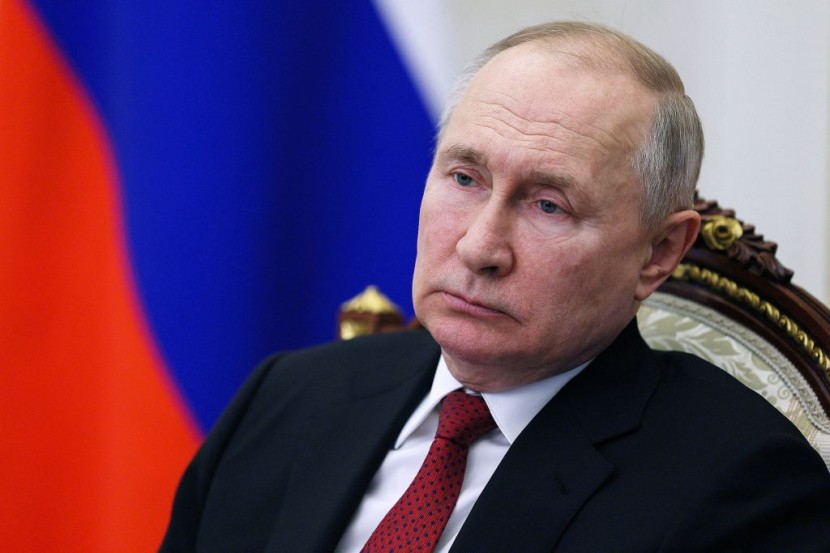
Three weeks after a brief insurrection by the Wagner mercenary group in Russia, President Vladimir V. Putin stated that the group's troops could continue fighting, albeit without their controversial commander.
In contrast, the Belarus government stated that Wagner fighters were training its forces. Wagner and its personnel, who have played a significant role in Putin's conflict against Ukraine, face an uncertain future due to the dissension and turmoil in the Russian military hierarchy that has become public since the rebellion.
Putin Gives Wagner Mercenaries Another Chance
However, the Russian leader intended to marginalize the uprising's commander, Wagner boss Yevgeny V. Prigozhin. In an interview published late on Thursday, Putin described a three-hour encounter with Prigozhin and his senior commanders at the Kremlin just days after the uprising.
Putin, who has worked hard since the mutiny to demonstrate his unchallengeable control over state affairs, presented himself in the interview as a cool-headed arbitrator towering above the turmoil and portrayed the mutiny as a trifling internal dispute he had resolved.
According to Kommersant, a Russian business daily that, along with a correspondent from state television, conducted the interview, he stated that he had commended Wagner fighters for their military prowess and suggested that a different Wagner leader succeed Prigozhin.
He claimed that he informed the Wagner troops that he "regretted that they appeared to have been drawn" into the mutiny, seemingly placing Prigozhin at fault. According to Tatiana Stanovaya, a nonresident scholar at the Carnegie Endowment for International
According to Putin, however, Prigozhin quickly rejected the proposition, informing him during their June 29 meeting following the uprising that "the boys won't concur with such a decision."
In a recent interview with Russia's leading business newspaper Kommersant, Putin inexplicably claimed that the Wagner Group, which led the 10-month brutal battle to seize the key city of Bakhmut in eastern Ukraine, "does not exist."
Putin's comments marked the first time he explained what transpired after the Wagner Group's brief rebellion, which intended to overthrow Russia's military leaders for their management of the Ukraine conflict.
Five days after Prigozin agreed to step down as part of a hastily negotiated peace agreement with the Russian government, the mercenary leader and 34 Wagner commanders were summoned to the Kremlin for a meeting with the president, who had just days earlier referred to their mutiny as an act of treason.
Putin told Kommersant's senior Kremlin correspondent Andrei Kolesnikov that he lauded the Wagner fighters' actions in Ukraine, denounced their participation in the uprising, and promised them opportunities for future service - with the condition that Prigozhin would not be involved.
One option is for the mercenaries to retain the senior commander known as "Sedoi" or "Gray Hair," who has been the de facto chief of the private army in Ukraine for the past 16 months.
Per NY Post, Putin reported that many Wagner personnel in attendance approved his proposal. Still, Prigozhin, seated in the front row and not seeing their enthusiastic response, swiftly vetoed the idea, stating, "The lads won't consent to such a decision."
Putin did not specify which proposal, if any, the mercenaries ultimately approved. On Monday, however, Kremlin spokesman Dmitry Peskov reported that the Wagner soldiers pledged their fealty to the president during the three-hour meeting and "stated that they are prepared to continue fighting for their homeland."
After the failed uprising, Prigozhin's fate remains shrouded in mystery. Under the ceasefire terms mediated by Belarusian President Alexander Lukashenko, he and his forces were exiled to Belarus.
Prigozhin's Return to Russia
Recently, however, Lukashenko stated that Prigozhin had returned to Russia. On Friday, Belarusian state television broadcast video footage of Wagner instructors instructing Belarusian territorial defense forces at a firing range near Asipovichy, where Wagner has been offered a camp.
A Belarusian messaging app reported that Prigozhin spent the night at the camp this week and posted a photo of him inside a tent. The Belarusian Ministry of Defense did not disclose the number of Wagner personnel stationed in Belarus.
Prigozhin, 62, was previously reported to be in St. Petersburg, where he was allegedly observed arriving at the FSB office at the beginning of the month to retrieve his previously confiscated arsenal of firearms.
President Joe Biden stated on Thursday that the United States did not know where Prigozhin was but quipped that the mercenary leader may have been poisoned.
© 2025 HNGN, All rights reserved. Do not reproduce without permission.








